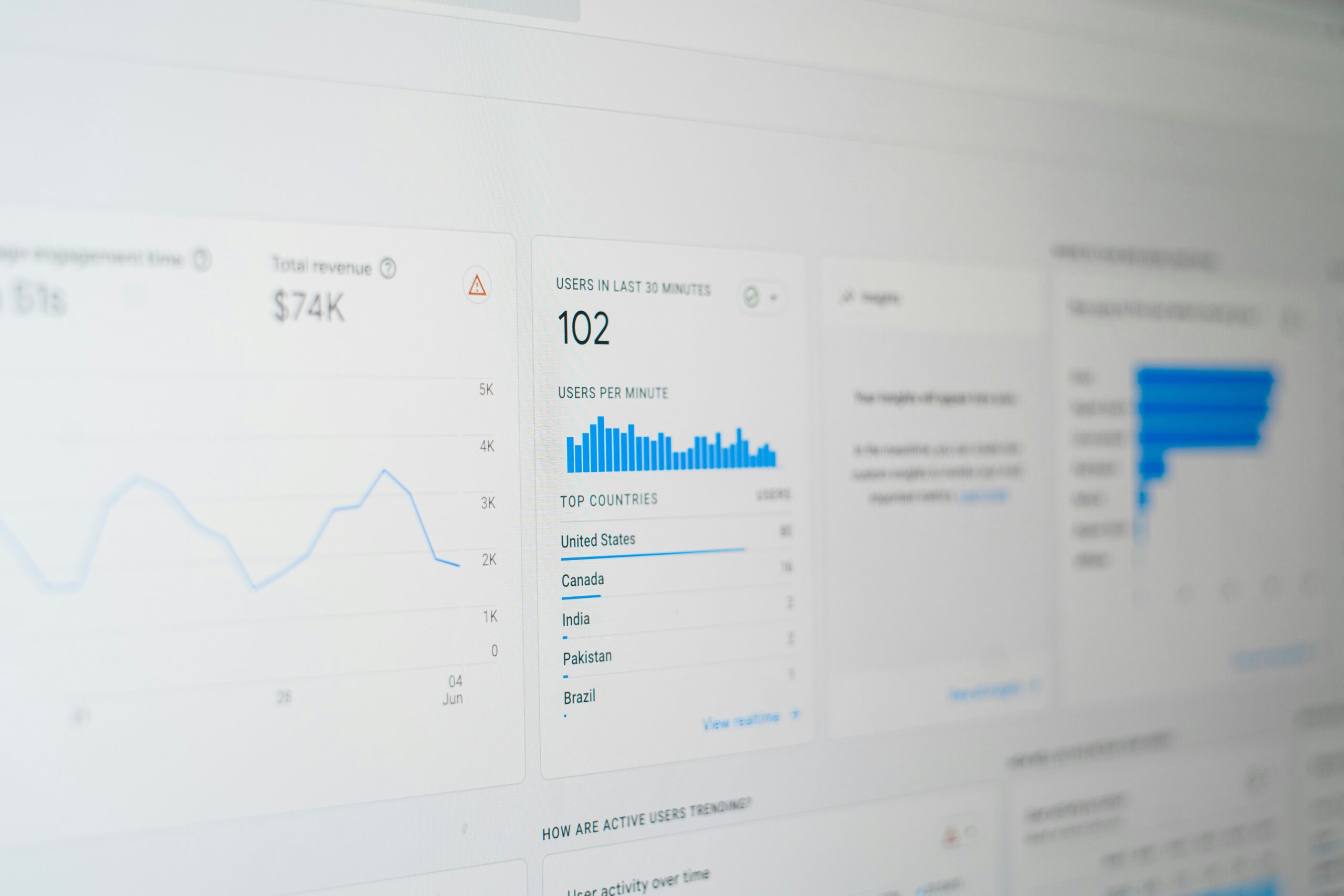Email Marketing Reinvented: The Power of Automation and AI
August 24, 2025 | by qqvmedia.com


The Evolution of Email Marketing
Email marketing has undergone significant transformation since its inception, closely paralleling advancements in internet technology. The journey began in the early 1970s when the first email was sent, marking the beginning of direct communication in the digital realm. However, it was not until the 1990s that businesses began to recognize the potential of this medium for marketing purposes. During this period, the concept of email newsletters emerged, allowing companies to reach customers directly in their inboxes. This was a revolutionary method that laid the groundwork for what we now know as email marketing.
Key milestones in the evolution of email marketing included the introduction of customer segmentation, which enabled marketers to tailor their messages to specific demographics. This practice enhanced engagement by ensuring that content was relevant to the recipient. Additionally, the emergence of personalized messaging brought a level of sophistication to email campaigns that had not been previously attainable. Marketers began utilizing data analytics to refine their strategies, crafting emails that resonated with individual user preferences and behaviors.
The transition from manual email campaigns to automated processes marked another pivotal moment in the evolution of email marketing. With the advent of marketing automation tools in the early 2000s, businesses could schedule emails, segment lists, and send personalized messages without the need for manual oversight. This efficiency not only saved time but also allowed for more strategic and consistent communications with audiences.
As the landscape of email marketing continues to evolve, recent advancements in artificial intelligence (AI) are set to revolutionize how marketing strategies are developed and executed. AI facilitates deeper data analysis, further improving segmentation and personalization efforts. Overall, the historical development of email marketing illustrates a dynamic landscape that is continuously shaped by technological advancements, paving the way for innovative practices that engage consumers effectively.
Understanding Automation and AI in Email Marketing
Email marketing has evolved significantly with the integration of automation and artificial intelligence (AI). At its core, marketing automation refers to the use of technology to automate repetitive tasks and workflows, allowing marketers to optimize their strategies more effectively. This technology enables businesses to streamline their email campaigns, ensuring timely and relevant communication with their audiences.
AI, particularly machine learning, plays a crucial role in enhancing marketing automation. Machine learning is a subset of AI that involves algorithms that can learn from and make predictions based on data. This capability allows for sophisticated customer segmentation and targeting, leading to tailored content that resonates with individual preferences and behaviors. For instance, through predictive analytics, marketers can analyze past interactions to forecast future behavior, enabling them to send personalized messages at the right moment.
The benefits of integrating automation and AI into email marketing are substantial. First, these technologies help to increase efficiency by reducing the time spent on manual tasks such as list management and performance tracking. With the right tools, marketers can set up automated workflows that send emails based on specific triggers, such as user actions or significant dates. Moreover, the personalization of content becomes readily achievable; emails can be modified in real-time to reflect user interactions, leading to improved engagement rates.
Various software solutions are available that incorporate these advancements. Platforms like Mailchimp and HubSpot offer automation features that allow marketers to create tailored campaigns with ease. Similarly, advanced tools such as SendGrid utilize machine learning algorithms to optimize delivery times and subject lines, further increasing the likelihood of successful engagements. Through the adoption of automation and AI, email marketing stands to not only enhance efficiency but also deliver more intuitive and personalized experiences to users.
Benefits of Automating Email Marketing with AI
The integration of automation and artificial intelligence (AI) in email marketing presents numerous benefits that significantly enhance the effectiveness of campaigns. One of the foremost advantages is improved efficiency and time savings. Businesses can automate repetitive tasks, such as email scheduling, list segmentation, and follow-up sequences, which allows marketers to focus their skills on strategy and creative development, ultimately leading to more streamlined operations.
Furthermore, AI-driven automation enables the attainment of higher engagement rates through personalized content delivery. By leveraging machine learning algorithms, businesses can analyze customer behaviors and preferences, tailoring email campaigns to individual recipients. This personalization fosters a deeper connection with the audience, resulting in increased open rates and click-through rates. Personalization is not merely addressing customers by their first names; it extends to recommending products based on past purchases or sending timely offers based on user activity.
Enhanced customer insights through sophisticated data analysis are another significant benefit of AI in email marketing. AI can sift through vast amounts of data to uncover patterns and trends that may not be immediately apparent to human marketers. This insight allows businesses to refine their targeting strategies, optimize timing, and understand which content resonates best with their audience. By utilizing predictive analytics, businesses can also anticipate customer needs and preferences, leading to proactive engagement efforts.
Lastly, the combination of automation and AI results in a better return on investment (ROI). Businesses that effectively automate their email marketing often report reduced costs associated with manual processes and increased revenue from more effective campaigns. Real-life case studies demonstrate how numerous companies have successfully harnessed these technologies to drive sales, boost customer loyalty, and foster long-term relationships, showcasing the transformative power of modern email marketing strategies.
Future Trends: What Lies Ahead for Email Marketing with AI
As we look to the future of email marketing, the integration of automation and artificial intelligence (AI) is poised to transform the landscape significantly. One of the most notable trends is hyper-personalization. With advancements in AI, marketers can analyze vast amounts of consumer data to tailor content that resonates with individual preferences and behaviors. This level of personalization not only enhances customer engagement but also fosters brand loyalty, ultimately leading to higher conversion rates.
Another emerging trend is the utilization of advanced analytics, where AI plays a crucial role in interpreting complex datasets. Through machine learning algorithms, marketers can gain deeper insights into customer journeys, identifying patterns that may not be evident through traditional analytics methods. This intelligence allows marketers to segment audiences more effectively, ensuring that email campaigns are not just sent, but rather strategically curated to maximize impact.
Furthermore, AI facilitates real-time decision-making, enabling marketers to respond to consumer actions swiftly. For instance, if a user clicks on a product link but does not make a purchase, automated follow-up emails can be triggered instantly, offering discounts or additional information about the product. This responsiveness is critical in today’s fast-paced digital environment, where consumer expectations are continually rising.
However, the adoption of these advanced technologies is not without challenges. Organizations may face obstacles such as data privacy concerns and the potential resistance to change within teams. Businesses should prioritize comprehensive training programs to empower their staff and invest in privacy-compliant solutions to safeguard consumer information.
In conclusion, the evolution of email marketing through AI and automation presents numerous opportunities for innovation. Marketers are encouraged to remain adaptable, embracing new technologies to unlock the full potential of AI-driven email marketing while navigating the challenges that may arise along the way.
RELATED POSTS
View all


